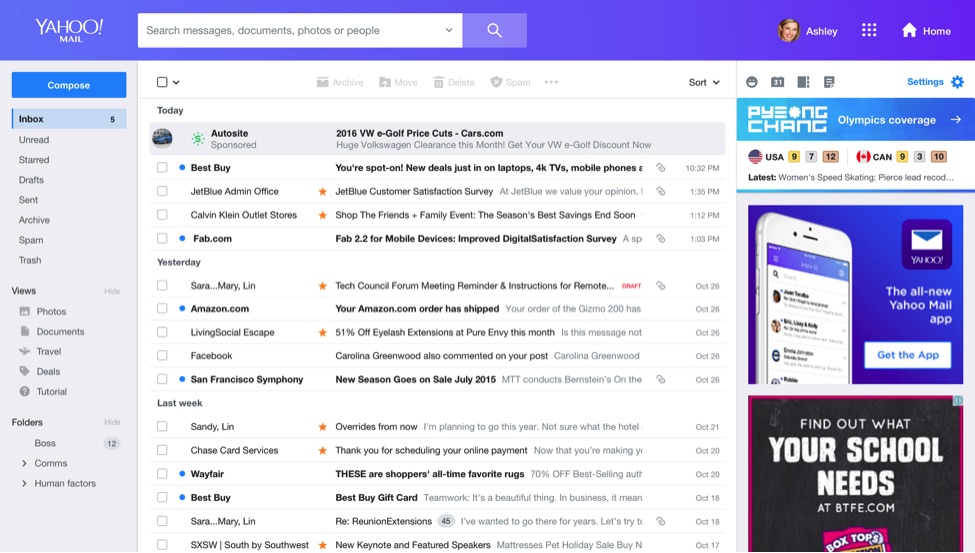
Yahoo’s email platform might have been picked up during the big Verizon buyout of 2017, but that doesn’t mean much has changed at the longstanding internet company. Just as it has in the past, Yahoo mail continues to scan the content of its users’ emails in order to sell that information on to advertisers. Although far from the size it reached at its peak, with some 200 million users said to be affected by this potential privacy invasion, the impact is far-reaching.
Revealed by sources that spoke to the Wall Street Journal, Yahoo’s parent company, Oath (that is itself a subsidiary of Verizon) claimed that it only scans promotional emails, and suggests that free email would always come with some associated costs. As the paradigm goes, if you don’t pay for a product, you are the product. But as The Verge highlights, Yahoo also conducts this form of email scanning on its premium mail platform, which costs users $3.50 per month.
The entire system can be opted out of, but to do that you have to jump through some very specific hoops and they don’t lead you to a settings menu, which could be confusing for those who typically consider themselves more savvy about such oversight of their personal content.
Oath claims that it scrubs any personally identifiable information from the information it sells to advertisers and doesn’t target anyone directly. Its system involves categorization of its user base, thereby sending users ads based on their perceived personality, financial status, or current employment based on the algorithms Yahoo uses to discover such information about them.
According to the Wall Street Journal sources, Oath is well aware that many people use Yahoo accounts for spam, which could mean that the company is simply using this scanning system to try and scrape as much value as possible from its acquisition as the relevancy of Yahoo Mail continues to fall. However, for those who do continue to use the online service, it could be cause for concern.
The titan of the industry, Gmail, has taken steps in recent months to improve the privacy of its service, introducing new features like timed emails and a confidentiality mode. Some warn, however, that its linking system could ingrain poor habits among users which could put them at risk of malware infection.
Editors' Recommendations
- You’re going to hate the latest change to Windows 11
- What is an RSS feed? Here’s why you should still use one
- If you’re still gaming on 16GB of RAM, you’re missing out
- There’s only one use for an RTX 4080 Ti, and it’s not what you think
- You’re putting your router in the wrong spot. Here’s where to put it instead



